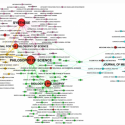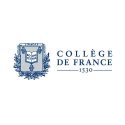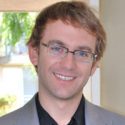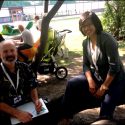Pradeu T, Daignan-Fornier B, Ewald A, Germain PL, Okasha S, Plutynski A, Benzekry S, Bertolaso M, Bissell M, Brown JS, Chin-Yee B, Chin-Yee I, Clevers H, Cognet L, Darrason M, Farge E, Feunteun J, Galon J, Giroux E, Green S, Gross F, Jaulin F, Knight R, Laconi E, Larmonier N, Maley C, Mantovani A, Moreau V, Nassoy P, Rondeau E, Santamaria D, Sawai CM, Seluanov A, Sepich-Poore GD, Sisirak V, Solary E, Yvonnet S, Laplane L. (2023), Reuniting Philosophy and Science to Advance Cancer Research. Biological Reviews. (Open Access).
Author Archives: Thomas Pradeu
June 2022 PhilInBioMed Magazine
New paper in Synthese
New paper in Synthese by Mahdi Khelfaoui, Yves Gingras, Maël Lemoine and Thomas Pradeu, assessing the visibility of philosophy of science in the sciences.
Khelfaoui M, Gingras Y, Lemoine M, Pradeu T (2021), The visibility of philosophy of science in the sciences, 1980-2018. Synthese.
Feral Atlas, a new website on ecological worlds
Feral Atlas invites you to explore the ecological worlds created when nonhuman entities become tangled up with human infrastructure projects. Seventy-nine field reports from scientists, humanists, and artists show you how to recognize “feral” ecologies, that is, ecologies that have been encouraged by human-built infrastructures, but which have developed and spread beyond human control. These infrastructural effects, Feral Atlasargues, are the Anthropocene.
Playful, political, and insistently attuned to more-than-human histories, Feral Atlas does more than catalog sites of imperial and industrial ruin. Stretching conventional notions of maps and mapping, it draws on the relational potential of the digital to offer new ways of analyzing—and apprehending—the Anthropocene; while acknowledging danger, it demonstrates how in situ observation and transdisciplinary collaboration can cultivate vital forms of recognition and response to the urgent environmental challenges of our times.
New BJPS post by Elliott Sober on Infectious Diseases
Infectious Diseases
and the Evolution of Virulence
Elliott Sober
BJPS, Auxiliary Hypotheses
http://www.thebsps.org/auxhyp/evolution-of-virulence-sober/
New postgraduate training course at the University of Bordeaux: Philosophy in science, conceptual approaches applied to biological and medical research
The course aims to equip medical, biological and neuroscientists with the conceptual tools of philosophy of science.
Philosophy is not conceived here as a reflection about science, but rather as a set of methods to improve research relevance and efficacy.
At the end of the program, participants will submit a paper, written in collaboration with the philosopher who supervises them, to a
scientific journal. All classes are taught in French.
Program Director : Maël Lemoine, Professor, philosophy of medical science, University of Bordeaux
Crédits: Images Gerd Altmann & Arek Socha (Pixabay), Photos Drew Hays & freestocks.org (Unsplash)
Thomas Pradeu on the microbiome at the College de France
On June 29th 2018, Thomas Pradeu gave a talk on “Microbiome: The Second Immune System” at the Collège de France, invited by Philippe Sansonetti (Chair in Microbiology and Infectious Diseases) at the Symposium “Microbiome and Human Evolution: (Micro)Biology Meets Anthropology”
The talk builds on collective work, published in: Chiu L., Bazin T. (co-first authors), Truchetet M-E., Schaeverbeke T., Delhaes L. & Pradeu T. (2017), Protective Microbiota: From Localized to Long-Reaching Co-Immunity. Frontiers in Immunology, Volume 8, Article 1678. (Open Access).
Video:
Video download
Jacob Stegenga, Visiting Scholar in ImmunoConcept lab
Jacob Stegenga will be an IDEX Visiting Scholar in Thomas Pradeu’s group at ImmunoConcept from October 2018 to June 2019.
Jacob is a University Lecturer in philosophy of science at the University of Cambridge (Department of History and Philosophy of Science). His research focuses on methodological problems of medical research, conceptual questions in evolutionary biology, and fundamental topics in reasoning and rationality. Stegenga’s present work is culminating in a book titled Medical Nihilism (Oxford University Press, 2018), in which he argues that if we attend to the extent of bias in medical research, the thin theoretical basis of many interventions, the malleability of empirical methods in medicine, and if we employ our best inductive framework, then our confidence in medical interventions ought to be low. His research employs empirical findings, analysis, and formal methods to establish normative conclusions about science.
Before going to Cambridge, Stegenga taught at University of Utah and University of Victoria, and was a Banting Postdoctoral Fellow at University of Toronto. He received his PhD from the University of California San Diego.
Research interests
Philosophy of science, philosophy of biology, philosophy of medicine
Selected publications
For a complete list of publications, please see Jacob’s Academia.edu site.
Medical Nihilism, Oxford University Press, 2018
Care and Cure: An Introduction to Philosophy of Medicine, University of Chicago Press, 2018
‘Three Arguments for Absolute Outcome Measures’ (with Jan Sprenger), forthcoming, Philosophy of Science
‘Population Pluralism and Natural Selection’, The British Journal for the Philosophy of Science 2016 67: 1–29
‘Measuring Effectiveness’, Studies in History and Philosophy of Biological and Biomedical Sciences 2015 54: 62–71
‘Probabilizing the End’, Philosophical Studies 2013 165: 95–112
‘Is Meta-Analysis the Platinum Standard of Evidence?’, Studies in History and Philosophy of Biological and Biomedical Sciences 2011 42: 497–507
2017 Callebaut Prize for Lynn Chiu
See ISHPSSB website
The Callebaut Prize was established in 2015, and is awarded every two years. It is intended to advance the careers of recent graduates working at the intersection of the fields represented by ISHPSSB by recognizing the best manuscript utilizing an interdisciplinary approach based on a presentation at one of the two previous ISH meetings by someone who was, at the time of presentation, a graduate student. The prize is named in honor of Werner Callebaut, whose untimely death in 2014 was mourned by the philosophy of biology community worldwide and particularly ISH members, and who made considerable contributions to the promotion of constructive dialogue and reciprocal respect in philosophical and scientific work, hence making a prize focused on interdisciplinarity most appropriate.
We are grateful to individual donors who have supported this prize, as well as to the Konrad Lorenz Institute for Evolution and Cognition Research (KLI) for support for the first three prizes.
For the 2017 Prize, the Prize Committee received 4 submissions. All were of very high quality, with several already published or accepted for publication. The Committee was struck by the diverse interpretations of interdisciplinarity represented, and the importance of ISH to graduate students due to its support for interdisciplinary research, as was frequently noted in the cover letters provided by the applicants.
This year’s Werner Callebaut Prize is awarded to Lynn Chiu for her paper “The Birth of the Holobiont,” which was presented at the 2015 ISHPSSB meeting in Montréal. A revised version of the paper, co-authored with Scott Gilbert, was published in the journal Biosemiotics in 2015. The paper has already received an award from this journal, which remarked on its interdisciplinarity and uniqueness as a collaboration between a senior scientist and a junior philosopher. Dr. Chiu completed her PhD at the University of Missouri in 2015, and is currently a postdoctoral researcher at the ImmunoConcept Lab at the University of Bordeaux/CNRS.
Lynn Chiu and Scott Gilbert
Drawing on recent philosophy of biology literature and on rich biological literature, this paper proposes a new “birth narrative” based on the view that humans are not monogenetic multicellular organisms but rather “holobionts,” that is, eukaryotes composed of multiple symbionts. This paper stood out both because of the clarity and stringent organization of its argument and its timely topic, but also because it makes a genuine intellectual contribution to the field. Much of the work in applied philosophy of science or integrated HPS is unidirectional: scientific episodes serve to illustrate or test philosophical conceptions, or else outstanding scientific achievements are explored in the hopes of generating new philosophical ideas. Such work is typically done to contribute to and advance the philosophy of science.
But the committee agreed that in this paper we have truly interdisciplinary work: the application of concepts from philosophy of biology and cognitive science (the situated cognition and bounded rationality literature) to a scientific conception adds something both to the scientific discussion of human reproduction and to philosophical discussions about individuals, evolution, and development as well as having interesting implications for the historiography of immunology and bacteriology.
Lynn recounted to the committee that she was particularly honored to apply for this prize since Werner Callebaut literally made this paper possible. She wrote: “The last time I saw Werner was at the 2015 EuroEvoDevo in Vienna. He had encouraged me to submit a (different) philosophical paper to a purely scientific session… And there I was, finding myself presenting to no one else but my college science hero developmental biologist Scott Gilbert, who invited me to have a chat during coffee break. As we talked sitting on the branches of a big tree outside, Werner passed by and, delighted by what he saw, snapped a photo of us. We then said our goodbyes. About two weeks later, Werner sent both Scott and I an email with our photo, with lovely comments about our conversations… in his response to Werner’s email, Scott invited me to write a paper together. I am immensely grateful that Werner witnessed this paper take shape and read it up to its penultimate draft.”
On behalf of ISHPSSB, I am pleased to award the 2017 Callebaut Prize to Lynn Chiu.
Rachel A. Ankeny (Chair), on behalf of the rest of the Callebaut Prize Committee:
Alan Love, Edna Suárez Díaz, Marta Halina, Pierre-Olivier Méthot, and Jutta Schickore.
Prizes
Prizes
Werner Callebaut Prize
Marjorie Grene Prize
David L. Hull Prize
Hull Prize
2017 Hull Prize citation for Richard Burian
2015 Hull Prize citation for Jane Maienschein
Grene Prize
2017 Grene Prize citation for Emily C. Parke
2013 Grene Prize citation for Lukas Rieppel and John Matthewson
2015 Grene Prize citation for Jun Otsuka
Callebaut Prize
2017 Callebaut Prize citation for Lynn Chiu
2015 Callebaut Prize citation for Sara Green
Sabina Leonelli on The Epistemology of Data Use
The Epistemology of Data Use: Conditions for Inferential Reasoning in the Age of Big Data Science
Sabina Leonelli (University of Exeter, UK)
Dec 1st, 2017
Center for Philosophy of Science, University of Pittsburgh (USA)
ABSTRACT: This talk examines the epistemology of data by addressing the challenges raised by ‘big data science’, and particularly the dissemination and re-use of large datasets via intricate and nested infrastructures such as digital databases. Empirically, my analysis is grounded on the in-depth qualitative study of “data journeys”, that is ways in which datasets are circulated and used for a variety of purposes across several different contexts. Conceptually, the talk brings my previous work on the relational nature of data to bear on existing philosophy of inductive reasoning and the triangulation of multiple lines of evidence (most prominently by John Norton, Alison Wylie and William Wimsatt), with the aim of outlining conditions under which big data can be used to reliably inform inferential reasoning. I conclude by highlighting five ways in which data science that fails to operate under such conditions could significantly damage scientific methods and the credibility of research outputs.









